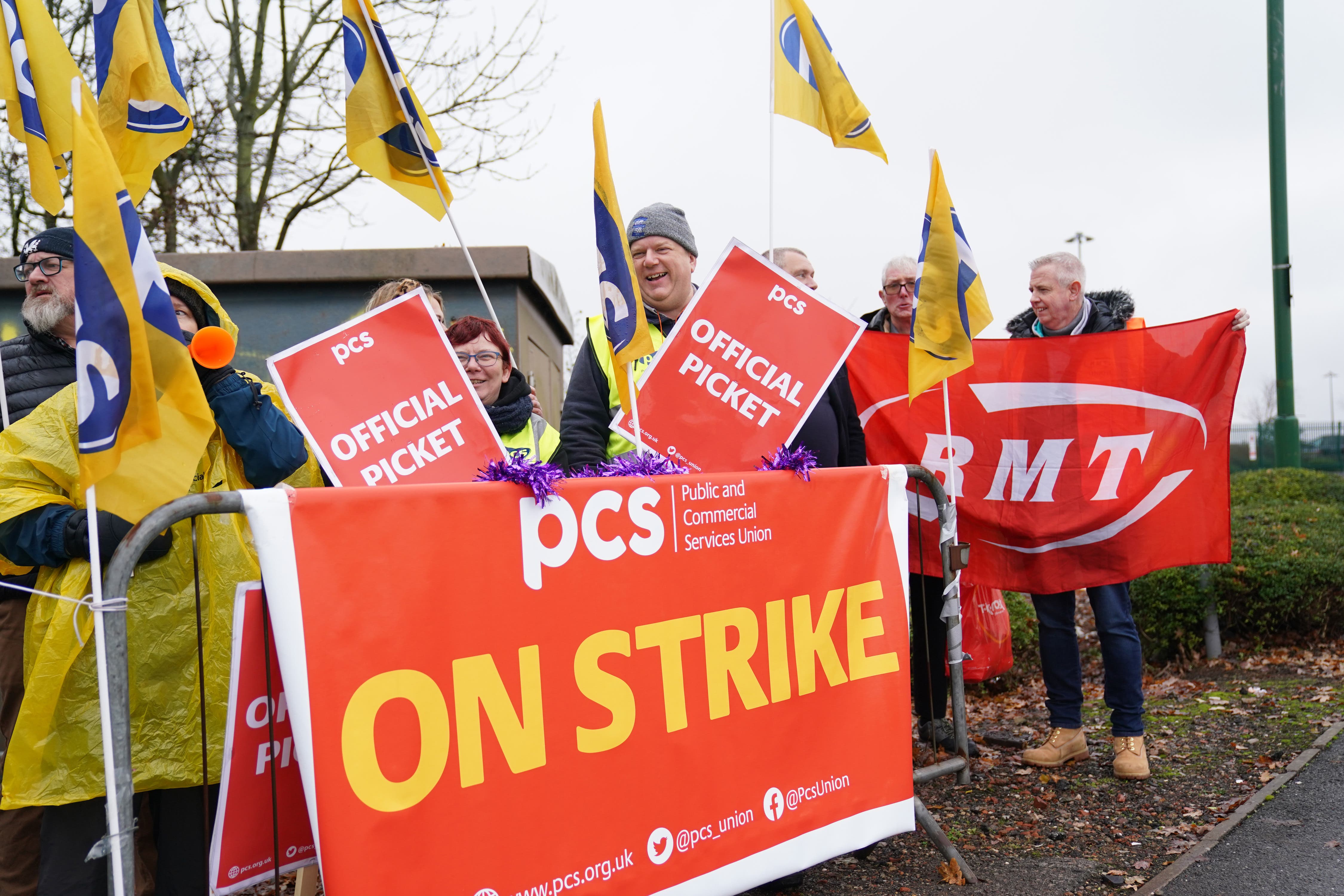Workers who breach proposed anti-strike law en masse ‘unlikely’ to face sackings
Lawyers from several UK firms have said that employers are unlikely to want to sack their workers over breach of the proposed law.

Your support helps us to tell the story
From reproductive rights to climate change to Big Tech, The Independent is on the ground when the story is developing. Whether it's investigating the financials of Elon Musk's pro-Trump PAC or producing our latest documentary, 'The A Word', which shines a light on the American women fighting for reproductive rights, we know how important it is to parse out the facts from the messaging.
At such a critical moment in US history, we need reporters on the ground. Your donation allows us to keep sending journalists to speak to both sides of the story.
The Independent is trusted by Americans across the entire political spectrum. And unlike many other quality news outlets, we choose not to lock Americans out of our reporting and analysis with paywalls. We believe quality journalism should be available to everyone, paid for by those who can afford it.
Your support makes all the difference.The Government’s proposed legislation on minimum service levels during strikes is unlikely to work because employers will not want to sack their staff over industrial action, legal experts have said.
Under the draft Strikes (Minimum Service Levels) Bill, bosses would legally be able to fire employees who ignore a “work notice” requiring them to work on strike days.
But lawyers from several UK firms have said that employers will have multiple options available for dealing with such workers, and it is unlikely they will want to choose the most “draconian” approach.
There is a skills shortage in many of the sectors covered by this proposed legislation, so dismissing staff will only exacerbate this issue
Danielle Parsons, an employment partner at Irwin Mitchell, said bosses could issue written warnings or other forms of disciplinary action.
She said: “Employers who want to send a firm message to a workforce might take the draconian approach and dismiss staff without prior warning.
“However, if all required staff ignore the notice, it is hard to imagine a situation where employers will be able to make numerous dismissals, and this would make the legislation entirely self-defeating.
“There is a skills shortage in many of the sectors covered by this proposed legislation, so dismissing staff will only exacerbate this issue.”
Ms Parsons said the legislation could also “drive workers out of their jobs” and make it even harder for sectors affected by the legislation, which include the NHS, to recruit.
“Nobody will want to be in a job that they can effectively be forced to perform against their will when they want to strike,” she said.
Ms Parsons added that the right to strike is protected by Article 11 of the European Convention on Human Rights, and the Government’s belief that the new law is compatible with this “is likely to be tested” if the legislation passes.
Melanie Stancliffe, an employment law specialist at Cripps, said employers could “turn a blind eye” to those who breach the new law.
It's very possible they will end up turning a blind eye to employees who choose to ignore a 'work notice' even if it would constitute a sackable offence under the changes
She said: “It’s unlikely that employers affected by the new laws will want to lose staff who strike when they’re not supposed to.
“It’s very possible they will end up turning a blind eye to employees who choose to ignore a ‘work notice’ even if it would constitute a sackable offence under the changes.
“As to whether the Government really has the power to sack workers if they refuse to comply en masse – legally, yes, but practically, it would make no sense and be entirely counter-productive to do so.”
Gita Patel, an employment solicitor at SA Law, highlighted how employers who want to fire staff for breaching a “work notice” would have to give them “a full and fair disciplinary” first.
She added that dismissing a whole group of employees is “likely to have adverse effects on the organisation in the long term”.
Health Secretary Steve Barclay declined to directly answer questions about what would happen if workers ignored the strike laws, during an interview with Sky News on Wednesday.
Asked for a third time about how the law would be implemented, he said: “We’re going to debate this.
“It will probably take about six months for the legislation to pass and this will be scrutinised, we will debate this in Parliament.
“It’s about the behaviour of the unions more than the individual members.”
The Strikes (Minimum Service Levels) Bill was introduced by Business Secretary Grant Shapps on Tuesday.